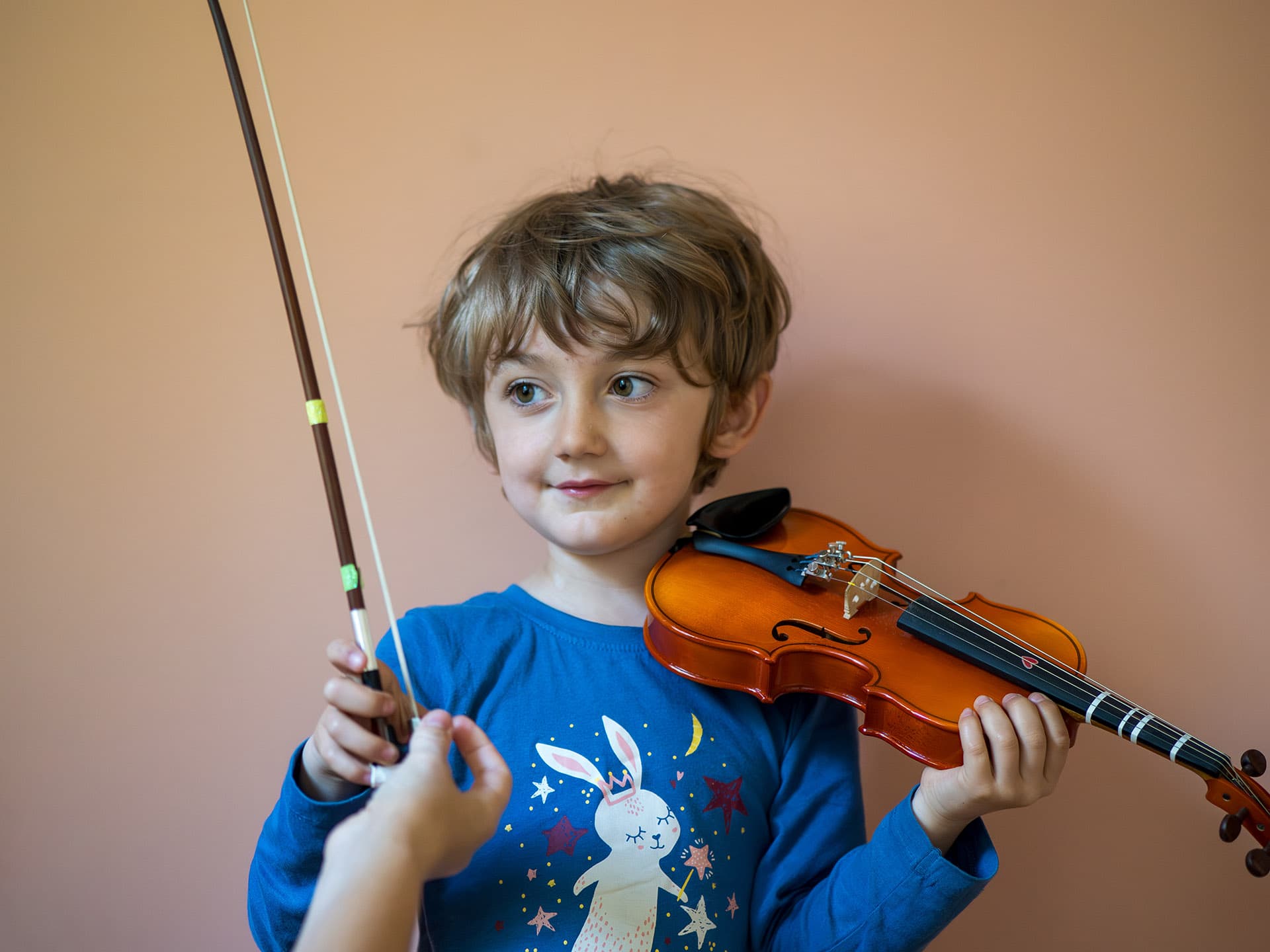

Many parents find it tricky to get started with violin practice at home. Just like with all new habits, it takes a while to establish.
My biggest tip is to try to make it a part of the daily routine. Ideally, you should practice at the same time every day (and choose a time that actually works every day of the week, a time when you are not away for activities some days). If the child expects the practice to take place at a certain time every day, just like they need to brush their teeth morning and evening every day, there are usually fewer conflicts.
The parent's job is to, if possible, make the child feel that practice is enjoyable and so fun that they WANT to practice! But we are all human and it will not be like that every day - do not feel stressed about this or think that you have failed. There will be good practice sessions and less good practice sessions, that is perfectly okay!
The desire to practice goes up and down does not mean that the child does not like playing their instrument in general. It reflects more the child's daily form and where they are in their development.
Some concrete practice tips:
Young children love games in all forms. It doesn't matter how “strange” the game is (the parent may be tired and lack imagination), as long as the child likes it and is more willing to practice, everything is fine! Here are some examples of games:
Children like to decide for themselves. Let the child be involved in their practice from the beginning by, for example, deciding the order of the pieces they play. Or give a choice of two pieces that deal with the same technique: “Do you want to play x piece or y piece?”
Be attentive to the current mood and know when it's time to stop - it's not worth ending the practice session on a bad note just to fit in that last piece or to force practicing a piece assigned as homework that the child doesn't want to play that day. (Speaking from personal experience!)
Older children can gain even more control by writing practice lists, so-called charts, and checking off items as they practice. The older the child, the more responsibility they take for their own practice. However, this should not lead one to believe that children can be completely independent in their practice. In my experience, up to and including elementary school age, and in some cases even longer, it is a great advantage for parents to attend both lessons and assist with practice at home.
Playing with other children is an important part of motivation. I cannot stress enough how important group lessons are for this reason. Here, children meet other children who put playing in a social context. Working in a group offers many opportunities that are not available in individual lessons. Plus, it is so fun to play together!